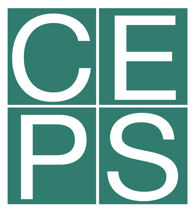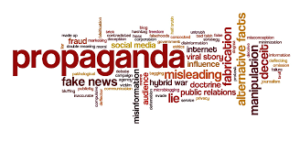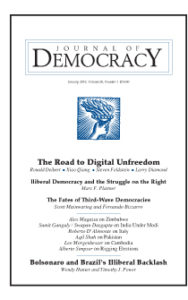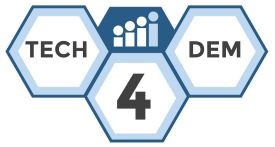Building democratic resilience against disinformation and populism requires additional awareness from policy makers, according to a new report.
The impact of disinformation and strategic political propaganda disseminated through online social media is the subject of an analysis from CEPS, the Brussels-based think-tank. The study – Disinformation and propaganda – impact on the functioning of the rule of law in the EU and its Member States – assesses the causes and impact of disinformation and propaganda on democracy, human rights and the rule of law within the European Union, and analyses how new technology has transformed the operation and structure of the democratic public sphere.
 Disinformation and propaganda are symptoms of deeper structural problems in social and media environments, the authors suggest. Rather than targeting content, policy-makers should identify and address the vulnerabilities that illiberal narratives exploit. The study’s recommendations focus on strengthening democratic resilience and adapting media policy.
Disinformation and propaganda are symptoms of deeper structural problems in social and media environments, the authors suggest. Rather than targeting content, policy-makers should identify and address the vulnerabilities that illiberal narratives exploit. The study’s recommendations focus on strengthening democratic resilience and adapting media policy.
“Global trends show that the phenomena of populism and authoritarianism are not isolated flaws in the system, but have a chance of becoming systems themselves,” the study states. “Therefore, tools for strengthening democratic resilience must be defined, protected and preserved.”
 Building resilience against empty populism requires additional awareness from policy makers:
Building resilience against empty populism requires additional awareness from policy makers:
It is advisable to create a package on how to improve the relationship between citizens and the state or decision makers, primarily through good governance, transparency and integrity, as well as social dialogue, addressing the realistic needs of society. Research shows that for false information to be challenged effectively within the human brain it needs to be replaced with an alternative narrative.
The analysis makes several recommendations for strengthening democratic resilience, including regulation of political and public issue advertising:
Ensuring transparency
- The digital platforms should proactively verify the identity of the advertisers (buyers and their clients) and allow users to access this information.
- Each digital platform should maintain a searchable repository of active and historical political and issue-based advertising targeting persons in the EU…..

CEPS
Dissemination methods
- Bots, automated accounts and artificial intelligence should be ruled out of publishing and disseminating political and public issue advertisements.
- Political micro-targeting should be recognised as a decision based solely on automated processing, including profiling, which significantly affects data subjects ….
Campaign financing
- The EU should harmonise the rules on the financing of political campaigns for elections and referenda…..
- A substantial reform towards a cleaner and more transparent structure for campaign financing…
Self-regulation and civic information
- Member States should create harmonised rules to induce political parties and other actors who take part in political campaigns to self-regulate – to lay down codes of conduct for an ethical and fair campaign, and to disseminate public information on these rules. RTWT

Technology for Democracy
Canada’s Communications Security Establishment (CSE) will receive an extra $4.2 million over the next three years to provide advice about cyber security to political parties and election administrators, according to reports:
The government is also proposing to set up a new project through the Heritage Department to increase the public’s ability to identify online disinformation. The Digital Democracy Project…. will be created by a $19.4 million investment over the next four years. …The government will also leverage the new project to lead an international initiative aimed at creating guiding principles to be used around the world to combat online disinformation.
A cyber protection service designed for customers operating in the political sphere will safeguard Australia’s forthcoming elections, Microsoft reports, citing a key plank in its Defending Democracy initiative.
“The online epidemic of misinformation, false news stories and election disinformation campaigns pose significant threats to democratic rights. says Alan C. Miller, founder and CEO of the News Literacy Project.
On the rising power of authoritarianism, and how new technologies have become tools of dictatorship, Robert Kagan recommends the January 2019 issue of the Journal of Democracy.
 The National Endowment for Democracy hosted a discussion (above) on “The Road to Digital Unfreedom,” highlighting threats to democratic societies and human freedom. Speakers: Robert Deibert, director of the University of Toronto’s Citizen Lab; Marc Plattner, co-chair of the International Forum for Democratic Studies’ Research Council; Xiao Qiang, founder and editor-in-chief of China Digital Times; Shanthi Kalathil, senior director of the NED International Forum for Democratic Studies; and Christopher Walker, NED vice president for studies and analysis.
The National Endowment for Democracy hosted a discussion (above) on “The Road to Digital Unfreedom,” highlighting threats to democratic societies and human freedom. Speakers: Robert Deibert, director of the University of Toronto’s Citizen Lab; Marc Plattner, co-chair of the International Forum for Democratic Studies’ Research Council; Xiao Qiang, founder and editor-in-chief of China Digital Times; Shanthi Kalathil, senior director of the NED International Forum for Democratic Studies; and Christopher Walker, NED vice president for studies and analysis.
Ukrainians will choose their next president in less than two weeks, on the 31st of March; and while the candidates campaign, voters are facing powerful information campaigns that will determine the future of the country, Technology for Democracy writes. Join the TFD team at Facebook’s DC headquarters, Tuesday, March 26th, 5:30 to 7:30, to learn what the Ukraine teams from both the International Republican Institute (IRI) and IREX are seeing online, what they’re doing in response, and how Facebook is helping secure this election.
Bots, Trolls, and Fancy Bears: Improving Electoral Integrity in Ukraine’s Upcoming Election @Facebook
 Featuring:
Featuring:
- Olga Belogolova, Strategic Intelligence Analyst, Facebook
- Motria Chaban, Program Officer for Ukraine, IRI
- Alex Cole, Director of Strategic Communications, IREX
Tuesday, March 26 2019
5:30 to 7:30 PM
Facebook DC
575 7th St NW, Washington, DC
RSVP







